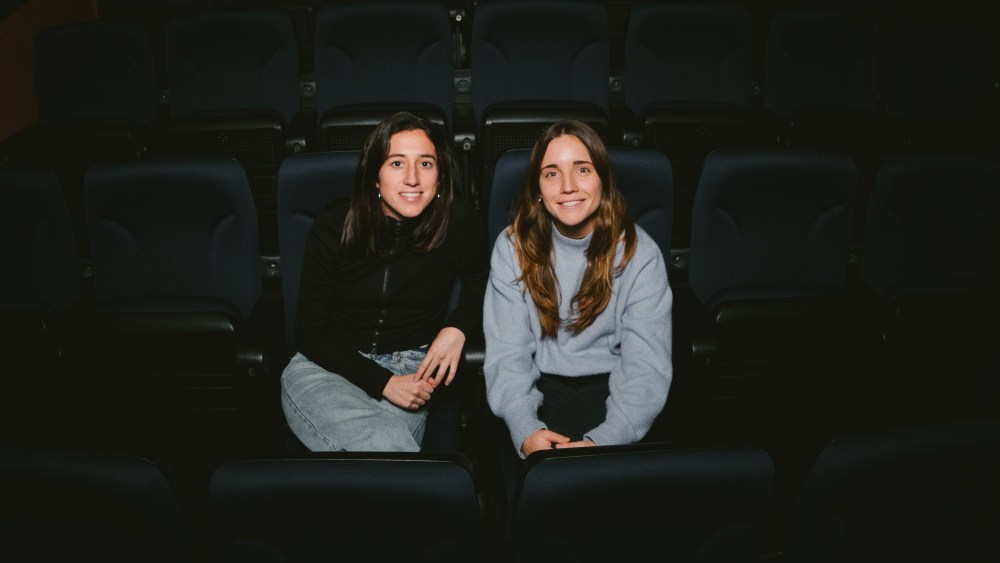As one of the five Films to Come at this year’s Incubator program of the Madrid Film School (ECAM), “Face of Grace” (“Cara de santa”) features a host of women behind the camera. It will be co-helmed by Anna Martí Domingo and Laura Santos Martí and produced by Mayca Sanz of Allegra Films and Laura Rubirola of Nocturna Pictures.
The project focuses on a subject matter close to their hearts, born organically out of conversations around a theme that has deeply unsettled them and raised many questions.
“A lot of these questions came from talking with our mothers and reflecting on their place in the world. That’s where the film originates — from that intergenerational dialogue between our generation and the generation of women born in the 1960s. Although the story is fictional, they were undeniably a key starting point for its creation,” say Domingo and Santos Marti.
“Face of Grace” follows 63-year-old Dolores who as a teacher, a wife and mother has always lived up to expectations. Her life in Barcelona is stable but suffocating: a dull marriage, a grown son about to make her a grandmother, and yet another Christmas far from her hometown.
On Christmas Eve, something snaps. After feeling provoked, she assaults a man in public — an impulsive, violent act that seems completely out of character. Suddenly, she’s thrust into a hostile system that puts her sanity and womanhood on trial. The world says she’s lost control, but something deeper has been set in motion.
Asked how they plan to split the directing tasks between them, the answer comes easy to them.
“Each of us brings our own personal experience in the industry and our individual background, which turn out to be very complementary when it comes to directing,” they say. Domingo’s has had some directing experience, having made the short “Nens,” which played at Valladolid’s Seminci last year, and has had more experience in directing actors. Santos Marti, on the other hand, was the production designer behind such lauded films as “Salve María” by Mar Coll, and has a stronger command of the formal aspects — the visual style and the camera.
While it will be the first time for them to co-direct a feature, they’ve worked together on the same sets. The project took shape when they were selected for the Feature Film Script Residency at the prestigious EICTV – International Film and Television School of Cuba.
“The idea was in a very early stage, and that residency helped solidify it. Thanks to the guidance of the mentors and the sessions we received, we left with a strong foundation that became the starting point for what the film is today. The way the school approaches screenwriting — their vision and methodology — is something we’ve carried with us ever since, and we’re not letting it go. It was an incredible and enriching experience,” they say.
For producing partners Sanz and Rubirola, the project captivated them at once. “We were deeply intrigued by the questions it raises and the debate it can spark. “‘Face of Grace’ is a film that shines a light on society’s reaction when the rules that govern our coexistence are broken, and a physical aggression is used as a response to a perceived offense. Specifically: how does society react when the rule-breaker is a woman? Is she judged the same way as a man? And what happens when that woman is a social pillar, a schoolteacher?” they say.
“The seemingly inexplicable violent outburst of a 63-year-old educator and mother puts both her sanity and her place in the community on trial. At the same time, it reveals the everyday frustrations many women of a certain age face—and how they are seen by their children and society at large,” they reflect.
At the moment, the project has the development support of the Catalan Goverment’s ICEC in Catalonia as well as the resources provided by ECAM’s Incubator, which has allowed them to participate in Focus Coproduction at Cannes and the EAVE marketing training.
“We also hope to secure production support from ICEC, ICAA, public broadcasters and streaming platforms, as well as bring on a European partner to access Eurimages and additional funds to complete the production,” the producers say.
Principal photography will take place in Barcelona, which plays a pivotal role in the story. “We want to portray Barcelona at Christmas, which is the time frame in which Dolores’s story unfolds. We hope to begin filming in the winter of 2026-2027,” say Domingo and Santos Marti.

